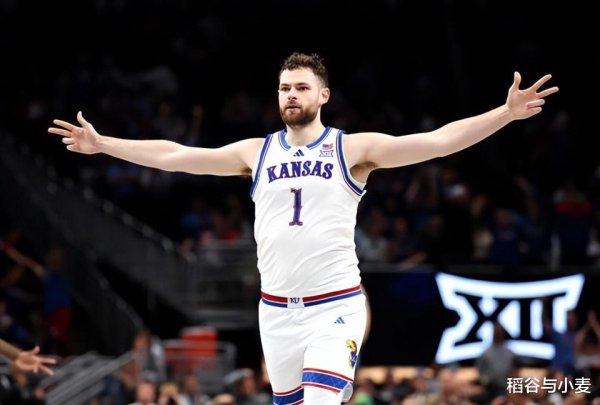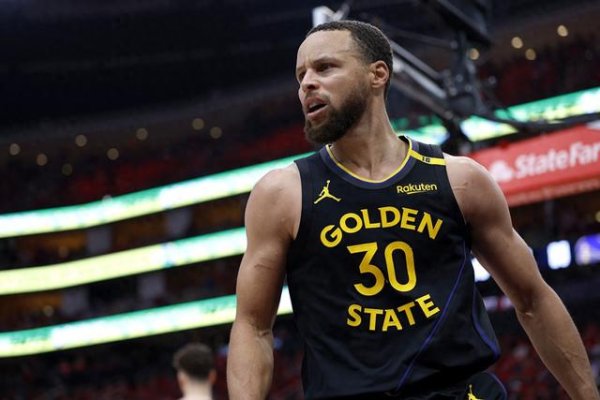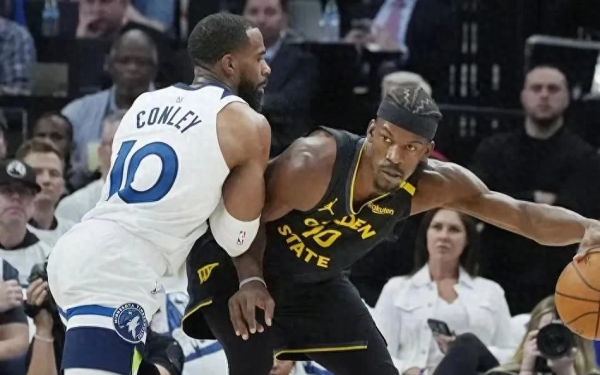HOME > Basketball
Regular season MVP or Finals MVP, which one is more valuable?
12:37pm, 13 November 2025【Basketball】

There has been endless debate in recent years about the value of regular season MVP and finals MVP. Obviously, this issue cannot be generalized and requires in-depth analysis from multiple dimensions to draw a relatively objective conclusion. Next, I will share with you a few angles.
1. Origin of the award: The core difference determined by the selection mechanism
The selection of regular season MVP has extremely strict time span and performance requirements. The NBA regular season lasts for 82 games, which means that the award-winning players need to maintain top-level personal competition during the nearly half-year season, and core indicators such as average data and efficiency value must be at the forefront of the league. More importantly, in addition to personal performance, you also need to lead the team to achieve the league's top record. Throughout NBA history, most regular season MVP teams can stabilize their final rankings in the top two in the East and West. This not only tests the player's continuous output ability, but also demonstrates his leadership in leading the team. Such an honor comes from 30 teams in the league and a total of about 450 registered players. You can imagine the intensity of the competition.
In contrast, the selection period for the Finals MVP is much shorter, and the winner only needs to be decided in a series of 4-7 games in the Finals. The core requirement is to perform well on the finals stage and help the team win the championship. The only exception is "logo man" Jerry West. As the core of the 1969 Lakers, even though the team lost to the Celtics in the Finals, he still averaged 37.9 points, 4.7 rebounds and 7.4 assists per game and became the only FMVP in NBA history who has not won the championship. Among them, he scored 53 points and 10 assists in the first game, 41 points and 8 assists in the second game, 40 points, 6 rebounds and 4 assists in the fourth game, 39 points and 9 assists in the fifth game, and 42 points, 13 rebounds and 12 assists in the fourth game.
From the perspective of competition scope, only two teams and about 16 players participated in the finals. The final candidates focused on the core players of the winning team. The actual number of competitors was only about 8, and the competition intensity was far lower than that of the regular season MVP. At the same time, due to the limited number of games in the series, fluctuations in player status and contingency in on-the-spot performance may affect the results, and there is the possibility of an "upset".
Therefore, from the perspective of the origin of the award, the regular season MVP is undoubtedly more valuable. As the saying goes in the basketball world: "There may be parallel imports for the No. 1 pick, but there must be no parallel imports for the regular season MVP." The players who can win this honor must be the absolute superstars of that season, or even the face of the league. Harden, Westbrook, Rose, etc. all showed their dominant strength in the season when they won the regular season MVP. The Finals MVP cannot give such an absolute conclusion, because there are indeed some role players or ordinary stars in history who have won this honor with their extraordinary performance in the series, such as Iguodala in 2015 and Billups in 2004. Their overall career performance is obviously far behind that of regular season MVP-level superstars.
2. Award additions: the essential difference between single honors and composite honors
Regular season MVP is a pure single honor. Its value only focuses on the player's personal performance and team leadership achievements in the regular season, and does not have any other award associations. The Finals MVP is completely different. It is a typical "compound honor" - after Jerry West, in order for a player to win the Finals MVP, he must help the team win the championship. These two honors are like "bundled sales" and cannot be separated at all.
This means that if you want to fairly compare the gold content of the two, you cannot simply compare the regular season MVP and the finals MVP directly, but you should compare the regular season MVP with the combination of "finals MVP + championship". In this way, it will be clear at a glance which one is more important. The regular season MVP is the ultimate proof of a player's personal ability and regular season dominance, while the value of the finals MVP is largely attached to the championship, the team's highest honor. A core premise must be made clear here. The main subject of our discussion is the "award itself", not the "winning player". The view that "Iguodala's championship + FMVP is not as good as Rose's regular season MVP" essentially changes the subject of comparison and confuses the concepts of award value and player's personal status, which is obviously not objective enough.
3. Player level or needs: the relationship between honor value and player positioning
First of all, we can make a basic judgment. If a player has the regular season MVP, he has undoubtedly entered the ranks of superstars. This is a consensus recognized by the industry. The selection criteria for regular season MVP itself determines that the winner must be one of the most influential players in the league that season. But if a player only has the Finals MVP, we cannot determine his level based on this. He may be a superstar like Leonard or a role player like Iguodala. The honor itself cannot directly reflect his long-term comprehensive strength.
But there is a common misunderstanding here. Many people will reversely judge the gold content of the award based on the level of the winning players. For example, because Curry's unanimous regular season MVP demonstrated the ultimate personal ability and team leadership level, the value of the regular season MVP is raised; because Iguodala is an ordinary player, the gold content of the finals MVP is belittled. This logic is obviously not reasonable enough.
You must know that the value of the award exists objectively and will not change due to the gain or loss of individual players. This is like 100 yuan. Whether it is received by an emperor or a beggar, the meaning and role of the two may be completely different. Some people regard it as insignificant, while others regard it as a life-saving straw, but this will not affect the value of 100 yuan itself. Its purchasing power is always fixed. In the same way, the selection criteria and historical status of regular season MVP and finals MVP are established and cannot be arbitrarily denied or exaggerated based on individual cases.
In other words, we cannot use a player’s personal level to forcefully affirm or deny the inherent value of a certain award..
From the perspective of players' needs, this also needs to be viewed in conjunction with the player's level, because players at different levels have completely different demands for honor. For ordinary players or All-Star players, the regular season MVP is their "best ticket" to become a superstar. Once you obtain this honor, it will not only prove your personal strength, but also bring about a surge in commercial value and achieve both fame and fortune. For the superstars who are already at the top of the league, their core needs have turned to the championship, and the Finals MVP, as the "most valuable player" certification in the championship journey, has naturally become their goal.
Take James as an example. In the summer of 2010, he already held two regular season MVP trophies and became a recognized superstar in the league. However, in order to compete for the championship, he did not hesitate to bear the reputation of a "traitor" and brought his talent to the Miami Heat to form the Big Three with Wade and Bosh. This choice is enough to show that when a player reaches the superstar level, the weight of the championship and finals MVP has already exceeded that of the regular season MVP.
Some people may think that the concepts of finals MVP and championship are confused here. It doesn't matter, let's abandon the "binding relationship" between the two and give another intuitive example. It's still James. In the 2011 Finals, the Heat's Big Three faced off against the single-core team leader Nowitzki. At that time, the outside world generally believed that the Heat won the championship easily. But in the end, the Heat unexpectedly lost. The reason is that there is a point that cannot be ignored. If the Heat win the championship, there is a high probability that the Finals MVP will be Wade, not James. Therefore, James has obvious ups and downs in the series. It is not that he really cannot beat role players like Barea. With his "bulldozer" physical fitness, he should be able to break through to the basket calmly and with ease. It can be seen from this detail that the superstar's desire for the Finals MVP has already exceeded the imagination of the outside world.
4. The significance of awards to players: the "watershed" between superstars and superstars
First of all, a dialectical relationship must be clarified. A player with a regular season MVP must be a superstar-level player, but conversely, a player without a regular season MVP may not necessarily be a superstar. For example, Wade and Leonard have never won a regular season MVP in their careers, but they have still become recognized superstars due to their dominance in the finals and long-term stable performance.
Looking at it from another perspective, players who have regular season MVP but no finals MVP (and championship) can only stay at the "superstar" level at best. Without the support of a championship, they will never be able to enter the ranks of "superstars". This sentence may be a bit absolute, but based on history, there is almost no controversy. The definition of a superstar lies not only in the peak of personal ability, but also in whether he can lead the team to the top and whether he can prove himself on the most critical stage of the finals.
So, how to distinguish between superstars? The number of championships is undoubtedly the core indicator. But if two superstars have the same number of championships, what should they compare to? The answer is naturally the number of Finals MVPs. Even before comparing the number of championships, people will already pay attention to "Who is the MVP of the finals of this championship?" One point must be emphasized here: Don't talk about the "core championship" in vain. Players who can't even win the finals MVP have any right to claim that they are the "core" of the championship? After all, the selection of the Finals MVP itself is recognition of the core and most critical players on the championship team.
In other words, players without Finals MVP cannot be considered superstars in the true sense. Even if they can join the ranks of superstars, they will always be at the bottom of this group.
Overview
Based on the analysis from the above four perspectives, from the perspective of the selection mechanism, the competition for the regular season MVP is more intense and the requirements are more stringent; however, from the perspective of the added value of the award, the improvement of the player's historical status, and the core needs of the superstars, the finals MVP is obviously more valuable. It is not only the ultimate recognition of personal performance, but also deeply bound to the championship, the team's highest honor. It is a key yardstick to measure whether a player can be upgraded from a "superstar" to a "superstar". Therefore, the final conclusion is that the finals MVP is more valuable than the regular season MVP.
Related Posts
- Wenban Yama s latest figure! Crazy transformation!
- A flash in the pan! The regret of the first generation of white horse spear!
- European Cup sad and happy night: Four teams qualify for three consecutive victories, and Doncic still finds a victory for 39+9
- Lakers news: James creates another miracle, Doncic polishes his weaknesses, American News suggests Sohawikins
- Very dissatisfied with the progress of the negotiations. The 76ers star in the backcourt may choose to sign a qualification offer?
- Analysis of Yang Hansen s second game performance in the summer league: Pros and cons are revealed
- Harden s 81.5 million details in two years: Keep the full middle class for the Clippers and no maximum salary after leaving the Rockets
- The top 50 players in the NBA s lowest winning rate are & No. 4 pick is shortlisted, the regicide is listed, and the number one declining god is only 20%
- Chalmos: James insists on physical therapy in nightclubs, so he has never been seriously injured
- Edwards continues to play in the G2 battle, the three best players in the 12 years of Oxford!
Hot Posts
- Wenban Yama s latest figure! Crazy transformation!
- A flash in the pan! The regret of the first generation of white horse spear!
- European Cup sad and happy night: Four teams qualify for three consecutive victories, and Doncic still finds a victory for 39+9
- Lakers news: James creates another miracle, Doncic polishes his weaknesses, American News suggests Sohawikins
Recommend

Rockets center Capela talks about returning to Houston: It s a pity to reject Harden

The Nuggets try out Kansas big five center. He has very comprehensive personal abilities on the offensive end?

Kwame: Don’t lose your fans when James’s character collapses. It’s not normal for him to earn so much money and not enjoy it.

Summary of the Clippers first four games - a start that didn t live up to expectations at all

Knicks fans mocked the dream: Is Cancun fun? The latter retorted: Can you afford to go?

Booker: Sometimes they say I pass the ball too much, I always make the right basketball choices

What does the Warriors lineup need? Curry: This is a tricky problem because I love everyone in the locker room

Timberwolves star Edwards generously admitted losing to the Warriors: I lost & to the shooting; I will take revenge in the next game